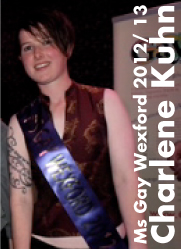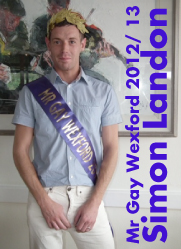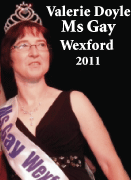.
Media Release: 22nd March 2016
EMBARGO: Midnight 21st March
All is not well: ground-breaking report shows higher levels of self-harm and attempted suicide among young LGBTI people
The LGBTIreland Report, being launched today (22nd March) by Dr. Mary McAleese, details the findings of Ireland’s largest ever study of the mental health and wellbeing of lesbian, gay, bisexual, transgender and intersex (LGBTI) people in Ireland. The study was funded by the National Office for Suicide Prevention and undertaken by a team at Trinity College Dublin, led by Professor Agnes Higgins.
The report shows that a majority of LGBTI people aged 26 and over are doing well, report good self-esteem and are proud of their LGBTI identity. However, these positive findings are not shared across all age groups. The research found that LGBTI people still face considerable barriers to good mental health, including bullying at school, fear of rejection and discrimination, harassment and violence and negative attitudes and stereotypes.
“Some of the findings of The LGBTIreland Report are harrowing, showing higher levels of self-harm and suicidal behaviour among LGBTI teenagers as well as worrying levels of severe and extremely severe stress, anxiety and depression. Being LGBTI in itself doesn’t increase the risk of poor mental health. It’s the experience of being bullied, being rejected or being harassed because you are LGBTI that leads to higher levels of self-harm and attempted suicide” said Odhrán Allen, Director of Mental Health at GLEN.
“The findings are stark. 56% of LGBTI 14 to 18 year olds had self-harmed, 70% had suicidal thoughts and 1 in 3 had attempted suicide” said Dr. Carol-Anne O’Brien, Director of Advocacy at BeLonG To.
“Compared to the My World National Youth Mental Health Study, LGBTI young people in this study had 2 times the level of self-harm; 3 times the level of attempted suicide; 4 times the level of severe or extremely severe stress, anxiety and depression” continued Dr. O’Brien.
“This scholarly report is as essential and revealing as it is horrifying. The ongoing damage is undeniable. That it involves so many young people is tragic. That it is soluble is the good news” said former President of Ireland, Dr. Mary McAleese, speaking at the launch.
Professor Agnes Higgins of Trinity College Dublin, who led the research team, said “As well as differences across age groups The LGBTIreland Report also found differences among LGBTI people. The research reveals that there is a hierarchy of risk among LGBTI people, with intersex, transgender and bisexual people reporting poorer mental health
outcomes compared to gay men and lesbian women.”
“This hierarchy of risk reflects the fact that more progress has been made on reducing homophobia in Ireland than biphobia and transphobia. This hierarchy of progress highlights the need for increased advocacy and support for bisexual, transgender and intersex people and to address the diversity of needs within the LGBTI community,” continued Professor Higgins.
Gerry Raleigh, Director of The National Office for Suicide Prevention (NOSP) said “The national suicide reduction strategy ‘Connecting For Life’ has identified the LGBTI community as a priority group for suicide prevention. The aim of the strategy is to reduce suicide and self-harm among the whole population and among priority groups by ten percent over the life time of the strategy. The data within this study is critical in designing and evaluating evidence informed approaches to suicide prevention among this priority group.”
“It is important for LGBTI young people and their families to know they are not alone. There are LGBTI youth and community services across the country. Schools, mental health services and other support agencies are being increasingly proactive about creating safe and supportive environments for the LGBTI people in their care. The report highlights the urgent need to accelerate this work. We look forward to working with these partners to achieve a better Ireland for LGBTI children to grow up in” said Dr. Carol-Anne O’Brien.
“The past continues to exert its negative legacy on many LGBTI lives. It is clear that stigma, rejection and discrimination are still a reality for many LGBTI people in Ireland. These unnecessary and preventable stresses that LGBTI children and teenagers still encounter as they grow up are reflected in the higher levels of self-harm and attempted suicide uncovered in the study. However, the progress achieved for Irish LGBTI people in 2015 gives us solid ground for the urgent work necessary in our schools, communities, workplaces and in our homes, to ensure that all LGBTI people are equal, safe, included and valued across Irish society” concluded Odhrán Allen.
Ends:
For further details contact:
Brian Sheehan GLEN (086) 2330417
Dr. Carol-Anne O’Brien BeLong To (087) 4153823
Odhrán Allen GLEN (086) 3405654
Photographer: Tommy Clancy (087) 2309947 – free repo pictures available
Editors Notes:
- The report will be launched by Dr. Mary McAleese at the Royal Irish Academy, Dawson St., Dublin2, at 11am on Tuesday 22nd March.
- Speaking at the launch will be:
- Dr. Mary McAleese Former President of Ireland
- Professor Agnes Higgins Trinity College Dublin, lead author of the report
- Susan Kenny National Office for Suicide Prevention
- Odhrán Allen Director of Mental Health, GLEN
- Dr. Carol-Anne O’Brien Director of Advocacy, BeLonG To Youth Services
- Two young LGBTI people will also speak at the event.
- Copies of the Key Findings are here and the full report is here and are also available at www.glen.ie or www.belongto.org
- Support for LGBTI people and their families is available at www.lgbt.ie, the national LGBT helpline at 1890 929 539, www.teni.ie , www.yourmentalhealth.ie or www.lgbtmentalhealth.ie
- For a full list of LGBTI youth services around the country, see www.belongto.org
- The report was commissioned by GLEN and BeLonG To, funded by the HSE’s National Office for Suicide Prevention and undertaken by team led by Professor Agnes Higgins at the School of Nursing and Midwifery in Trinity College Dublin. The study surveyed 2,264 LGBTI people and conducted an attitudes survey amongst the general population.
- The report recommended the following as strategic approaches to address the issues:
- Reduce mental health risks and build resilience among LGBTI people.
- Support the LGBTI community to flourish.
- Protect and support LGBTI children and young people in schools.
- Increase public understanding and change attitudes and behaviour.
- Recognise the diverse needs within the LGBTI community
- Build the knowledge and skills of professionals and service providers.
- Conduct further research and assess progress
- This is the first Irish study that explores the experiences of intersex people. Intersex is a term used to describe individuals who are born with sex characteristics (chromosomes, genitals, and/or hormonal structure) that do not belong strictly to male or female categories, or that belong to both at the same time.
- In 2015, the Government launched Connecting for Life, the new national strategy to reduce suicide 2015-2020. Connecting for Life is founded on the suicide prevention work that has taken place in Ireland over the past ten years as part of Reach Out, the Government’s previous strategy to reduce suicide. The National Office for Suicide Prevention (NOSP) provides cross-sectoral support for implementation of Ireland’s suicide prevention strategy. NOSP was set up in 2005 within the HSE and is a core part of the HSE National Mental Health Division.
Connecting for Life involves preventive and awareness-raising work with the population as a whole, supportive work with local communities and targeted approaches for priority groups. The strategy proposes high-quality standards of practice across service delivery areas, and an underpinning evaluation and research framework. This wide reach presents unique implementation challenges. The whole-of-government, multi-agency, inter-professional, expert-by-experience, local/national focuses will involve multiple stakeholders across and between levels of government and governance.

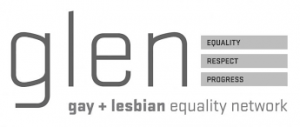

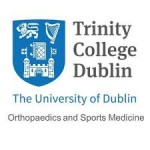

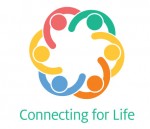
 Follow
Follow